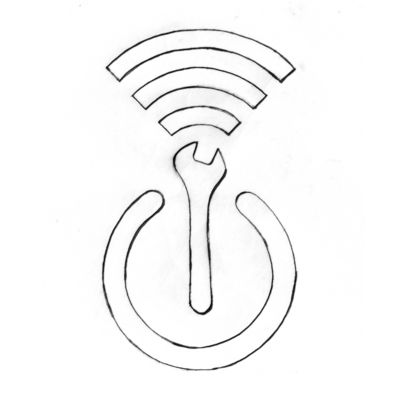A bi-weekly talk show by The Restart Project, plus a monthly documentary series produced by brilliant podcaster Dave Pickering, based on fixing triumphs, heartbreaks and wisdom shared at our community repair events – called Restart Parties – here in London. We go into real depth about good and bad design, obstacles to repair of electronics, emotional aspects of ownership, environmentally irresponsible business models, and the “end of life” of our gadgets. This podcast is for you if you'd like to fix your relationship with electronics. Let’s rethink, restart.
https://therestartproject.org/podcast/
Restart Podcast Ep. 41 Exploring waste in space
We are currently in the midst of Earth Week, but in this episode, we are going to space. The environmental cost of technology is not just felt on the ground. And e-waste doesn’t just exist on earth, it exists in orbit too – and we’ve created loads in the past couple of decades.
Eager to know more, we reached out to the European Space Agency (ESA) and talked to Luisa Innocenti. She is Head of ESA’s Clean Space initiative, which exists to reduce the environmental impact of space activities both on the ground and in space.
The uncontrolled, polluting space debrisWaste in space is commonly called space debris, which includes all objects in space which are not controlled, ranging from a few millimetres to an entire satellite, so from a few grams to several tons.
Space debris can be very dangerous if it collides with active satellites. Over the last decades, we have created loads of e-waste in space – we discuss the question of responsibility when countries abandon the objects they launch in outer space.
Tackling waste through ecodesignESA suggests various solutions to tackle space debris. One of them is ecodesign, which aims to reduce the environmental impact of space tech throughout its lifetime, from design to disposal.
It is crucial also to plan for durability and obsolescence when designing this technology. As Luisa points out, in what relates to satellites: “when you are in space, you cannot replace a part if it doesn’t work”. We also talk about strategies to plan for the end of life of satellites in space, and technology to remove the debris already there.
Linking space and earth techWe may not realise enough how much our daily use of technology on Earth is depending on technology in orbit: the best example is the navigation systems. Space technology is crucial for the accurate location in our phones, but also for weather forecasting or for watching live TV almost anywhere in the world.
As most of our devices rely on things orbiting around our planet, space debris needs to be tackled to keep our technology working. We also ask whether keeping space “clean” is important in its own right.
April was Space Month at Restart Radio. Check out our space-themed radio show on iridium, mobiles and dinosaurs!
Thanks to ESA for the extra audio from this episode, including satellite launches or the dramatic end of the Rosetta mission. Thank you also to the ‘Space Roomba’ podcast episode, from Flash Forward, which was an initial inspiration to learn more about space debris.
Links:
- ESA: Clean Space
- ESA: Luisa Innocenti
- The Restart Project: Repairing for the Earth, Repairing Everywhere
- The Restart Project: The iridium anomaly, your mobile and the dinosaurs
- Flash Forward: Space Roomba
[Featured image on Clean Space’s ecodesign, from the European Space Agency. Space debris GIF also from ESA under CC BY-SA 3.0 IGO licence.]
The post Restart Podcast Ep. 41 Exploring waste in space appeared first on The Restart Project.
